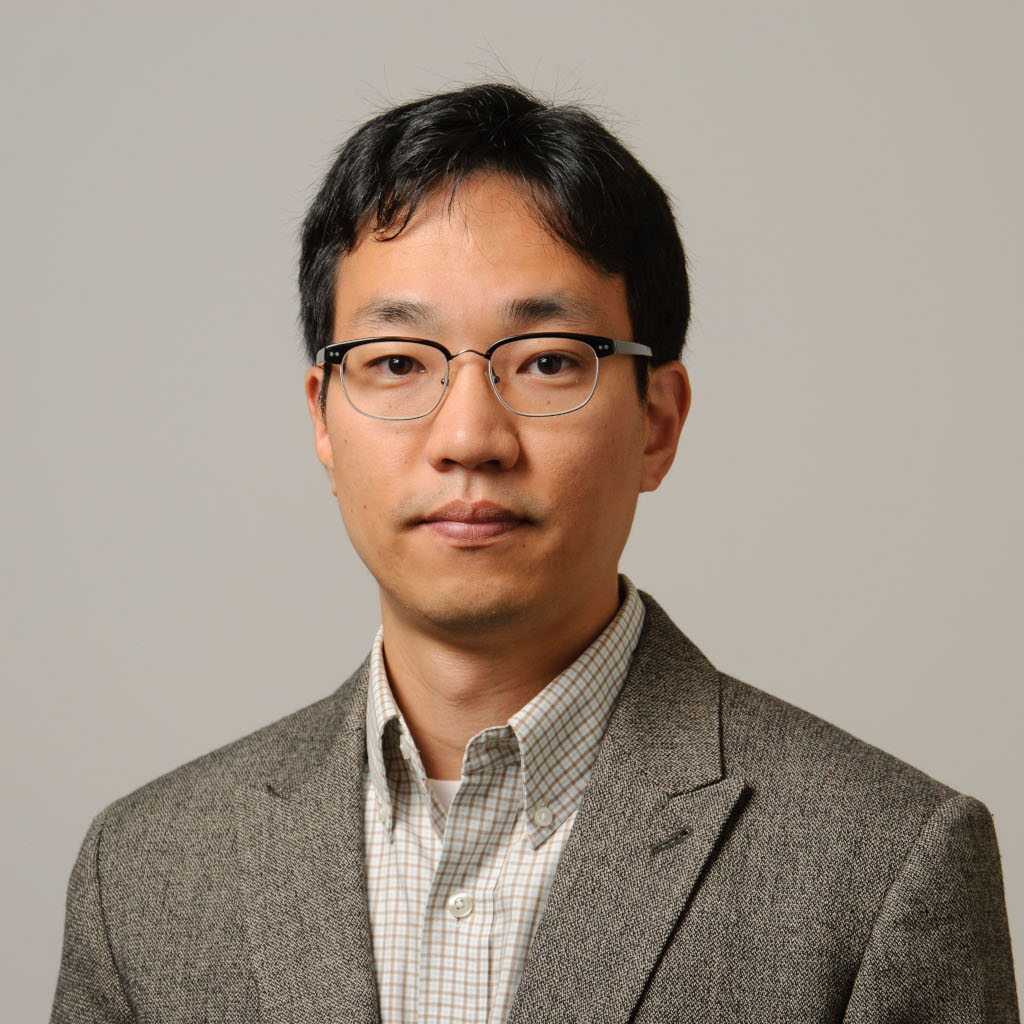Associate Professor
Ph.D., University of Wisconsin-Madison (2010)
Current Research
- Protein Engineering
- Antibody Engineering
- Alzheimer’s Disease
- Optogenetics
Professional Activities
Member: American Institute of Chemical Engineers
Member: Society for Neuroscience
Member: American Society for Photobiology
Research Statement
Dr. Cho’s research group aims to develop technologies to control and observe biological processes, with the ultimate goal of understanding the function of proteins in complex neural circuits and identifying the root cause of brain disorders. His research group is particularly interested in engineering light-activated proteins to develop optogenetic tools, and engineering specific binding proteins to detect protein localization and function. Currently, the group is working on the following areas:
Engineering Light-activated Proteins
Light-activated proteins, commonly found in plants and algae, allow these organisms to sense light and use its energy. These proteins can be repurposed as powerful tools to control specific biological processes in mammalian cells. This strategy, commonly referred to as optogenetics, is particularly powerful in deciphering the role of targeted neural cells within their complex native environment. A major bottleneck in developing and improving optogenetic tools is the lack of an adaptable platform for engineering light-activated proteins. In order to optimize these proteins as tools, multiple parameters that dictate their performance need to be improved. To address this challenge, Dr. Cho’s group is leveraging the power of automated microscopy to enable multi-parametric screen of light-activated proteins.
Engineering Binding Proteins for Neural Imaging and Modulation
The development of advanced imaging capabilities such as super-resolution microscopy combined with molecular labeling methods allows the visualization of complex structures such as the synapse that are critical for understanding neural function. These technologies have the potential to pinpoint the location of proteins in fine neuronal structures and reveal the changes occurring in these structures under diseased state. Dr. Cho’s group is interested in screening binding proteins for key neural target proteins and coupling novel functionality to these binding proteins for studying target protein function.
Previous Positions
| 2010-2013 | Postdoctoral Associate, Synthetic Neurobiology Group, Massachusetts Institute of Technology |
| 2004-2010 | Graduate Research Assistant, University of Wisconsin-Madison |
Awards & Honors
| 2019 | Alzheimer’s Association – New Investigator Grant |
| 2016 | American Chemical Society Best of BIOT Award |
| 2014 | NARSAD Young Investigator Grant |
| 2007-2010 | NIH Genomic Sciences Training Program Fellow |
| 2004-2007 | Gold Medal in Biochemical Engineering Competition sponsored by the Korean Institute of Chemical Engineers (KIChE) |
| 2004-2006 | Samsung Scholarship |
Recent Publications
Pirhanov, A., Bridges, C.M., Goodwin, R., Guo, Y-S., Furrer, J., Shor, L.M., Gage, D.J., Cho, Y.K.*, Optogenetics in Sinorhizobium meliloti enables spatial control of exopolysaccharide production and biofilm structure, ACS Synthetic Biology, (2021). https://doi.org/10.1021/acssynbio.0c00498
Wang, S., Cho, Y.K.*, Yeast surface display of full-length human microtubule-associated protein tau, Biotechnology Progress. 36(1), 1-11 (2020). PMID: 31581367
Li, D., Cho, Y.K.*, High specificity of widely used phospho-tau antibodies validated using a quantitative whole-cell based assay, Journal of Neurochemistry. 152(1), 122-135 (2020). PMID: 31325178
Cho, Y.K., Park, D., Yang, A., Chen, F., Chuong, A.S., Klapoetke, N.C., Boyden, E.S.*, Multidimensional screening yields channelrhodopsin variants having improved photocurrent and order-of-magnitude reductions in calcium and proton currents, Journal of Biological Chemistry. 294(11), 3806-3821 (2019). PMID: 30610117
Li, D., Wang, L., Maziuk, B.F., Yao, X., Wolozin, B., Cho, Y.K.*, Directed evolution of a picomolar affinity, high-specificity antibody targeting phosphorylated tau, Journal of Biological Chemistry. 293(31), 12081-12094 (2018). PMID: 29899114

| cho@uconn.edu | |
| Phone | (860) 486-4072 |
| Mailing Address | 191 Auditorium Road, Unit 3222, Storrs, CT 06269-3222 |
| Office Location | UTEB-278 |
| Link | http://cholab.engr.uconn.edu |